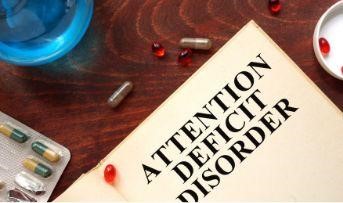Blog Details - Magma HDI

Understanding attention deficit disorder in detail 4th May 2019
Attention deficit disorder is a serious mental disorder in children and young teenagers. A study shows that almost 17% of Indian youngsters have ADHD or attention deficit disorder. Furthermore, almost ten million children are diagnosed with ADHD annually in India. Therefore, to avoid the possibility of ADHD, you must learn everything about it.
What is ADHD?
ADHD is the abbreviation for Attention Deficit/Hyperactivity Disorder. This disorder is a chronic mental condition that affects children, and if untreated, it may continue into adulthood. However, the symptoms may reduce with age as adults learn to cope with ADHD independently. But chronic ADHD can affect your children's regular and academic performances.
Types There are three types of ADHD:
● Predominantly inattentive
● Predominantly hyperactive/impulsive
● Combined (both inattentive and hyperactive)
Causes
Scientists are still not sure about the root cause of ADHD. However, modern studies say that genetics plays a vital role in developing attention deficit disorder among children. Furthermore, the following factors have the potential to cause ADHD:
● Alcohol or tobacco intake during pregnancy
● Early pregnancy
● Premature birth
● Brain injury
● Problems in the Central Nervous System
● Low birth weight
● Childhood trauma
● Other environmental issues
Symptoms
Common symptoms of ADHD are inattentiveness, hyperactivity, and impulsive behaviour. However, boys and girls may show different symptoms. While your boy child can become hyperactive, you can spot young girls being quietly inattentive.
Children begin to show symptoms of ADHD as early as 3 years of age. Scientists have categorised the symptoms according to different types of ADHD:
● Predominantly inattentive
1. Lack of attention in any work
2. Failing to focus on school
3. Lack of focus on constructive chores
4. Avoid doing a chore like homework that demands mental effort
5. Repeated loss of focus and attention while talking to people
6. Forgetting important tasks
7. Not paying attention to elders
● Predominantly hyperactive/impulsive
1. Difficulty in being quiet
2. Constant talking
3. Interrupting others while talking
4. Always in motion
5. Signs of restlessness while sitting in a place
6. Fail to concentrate on one thing for a long time
7. Always doing something that does not seem normal in a child
● Combined (both inattentive and hyperactive)
1. Being inattentive and interrupting others
2. Too much energy but a lack of interest in doing anything constructive
3. All the symptoms of the two types mentioned above
When should you consult a doctor?
Many parents confuse normal high energy and inattentiveness in their children with attention-deficit/hyperactivity disorder and rush to their paediatrician. However, it is normal for a healthy child or inquisitive teenager to exhibit high energy and restlessness to learn new things.
Again, some parents confuse ADHD with normal activities and neglect their child's problems. If you ever sense anything unusual in your children and feel that certain behaviours are abnormal, you should consult your healthcare professional immediately. Your children cannot tell you their problems. It is your job to pay close attention to every activity of your children. Your children may be attentive and quiet at home but behave otherwise in school and vice versa. All these symptoms can be an alarm for ADHD.
Complications
ADHD does not lead to any serious complications. However, children with ADHD can develop certain complications.
● Oppositional Defiant Disorder
● Autism Spectrum Disorder
● Mood Disorder
● Learning Disabilities
● Anxiety Disorder
● Conduct Disorder
Prevention
Since there is no definite proven cause of ADHD, no specific method is known to prevent ADHD. However, it would be best if you stopped consuming caffeine, alcohol, and tobacco during your pregnancy. Furthermore, you can limit the screen time of your teenagers.
Attention deficit/hyperactivity disorder is a chronic medical condition that you should handle carefully under the proper instruction of your paediatrician and psychiatrist. Insure yourself and your loved ones with the right medical coverage. Offline and online health insurance companies will cover your children's medication expenses. Invest in reliable health insurance and cover your medical expenses for hospitalisation, illness, accidents, etc.
Click HERE to browse online health insurance policies.
Disclaimer: The information provided above is for illustrative purposes only. To get more details, please refer to policy wordings and prospectus before purchasing a policy.

